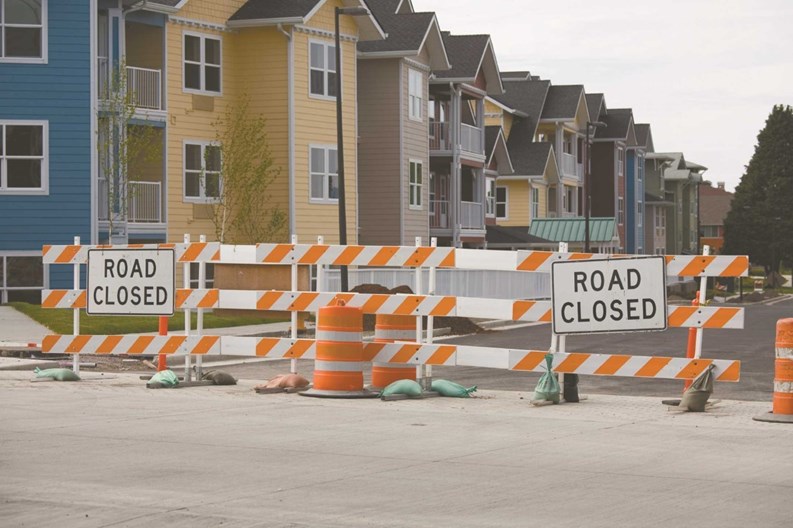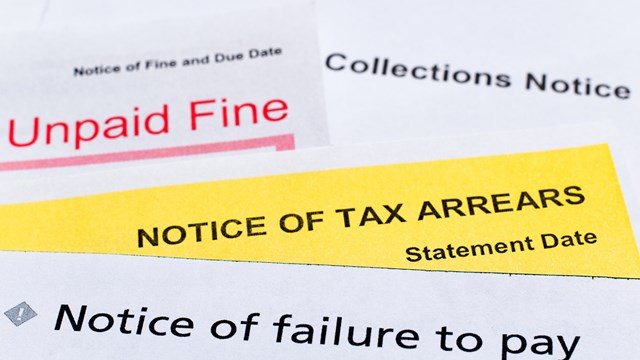Boston, Massachusetts may seem worlds away from the serene Garden State, but the story of one embattled condo building there represents a dire cautionary tale for boards and managers everywhere.
A couple of years ago, the residents of Boston’s Harbor Towers Condominium were hit with a $75.6 million special assessment—believed to be the highest ever in Boston—to cover the costs of repairing and replacing the heating and cooling systems of their two waterfront mid-rises. The one-time assessment, ranging from $70,000 to $400,000 per unit owner, led to a bitter political struggle and panic on the part of some residents who would likely have to sell their units to pay the huge bill, due in November of 2007. According to a letter issued by the Harbor Towers board, 95 percent of the assessment has been collected—but the close-knit building community was torn apart over the issue, and the possibility of a similarly massive assessment being charged in an New York City co-op or condo is not purely theoretical. What if it were to happen in your association, and could it be prevented? The answer is a definite…maybe.
For many HOA residents, learning of an impending special assessment can be unsettling. With maintenance fees increasing yearly, yet another residential fee can seem to be too much. But the reasons for leveling a special assessment on the residents of a condo building or HOA are varied: the fee might be necessary for a large emergency repair to the building, or for some other unexpected outlay, such as an exponential increase in utility costs that the board feels must be recouped.
Like new taxes, special assessments are never popular with residents, and so board members are loath to recommend such fees. Sometimes however, special assessments are unavoidable. Knowing when and how to navigate an assessment—and how to avoid them, when possible—are part of what’s needed to make sound decisions as a board. Handling the assessment process smoothly is the other part of the work. Unfortunately, some boards neglect that part of the process because they are focused on fixing the maintenance problem that led to the budget shortfall in the first place.
Timing is Everything
A board should consider making a special assessment if there’s an immediate need for the funds, and there are no other options to come up with the funds, says Gary Sherman, a CPA and a partner with Rosenberg Rich Baker Berman & Co., in Bridgewater. “For instance, ridiculous amounts of snowfall… Several years ago, many of the associations had special assessments to deal with snow-related costs that were large—like an $8,000 budget ballooned to $50,000,” Sherman says.
In addition to instances of extraordinary amounts of snow, or damage to a property from ice, a special assessment might be levied if immediate structural repairs to the building are necessary, says Gary B. Rosen, a CPA and CFE (certified fraud examiner), with Wilkin & Guttenplan PC in East Brunswick.
A special assessment might also be a more discretionary action taken by a board, done in the interest of providing a necessary benefit for the building and its residents. Depending upon the board, it could consider a special assessment for reasons that some residents might not consider to be immediate.
“A board can consider a special assessment for capitol improvements, if the reserve fund is too low, or for increases in operation cash,” says Joseph A. Cavalcante, co-owner of Cavalcante & Company, an accounting firm based in Brooklyn, New York. “The board has a fiduciary responsibility to ensure that maintenance charges cover operating expenses. Any [unanticipated] operating expense has to come from the residents.”
It is common for the board of an HOA that has no cash reserves and is unable to get sufficient credit for a major and necessary capitol improvement to impose a special assessment on residents, says Stephen Beer, a partner specializing in co-ops and condos for Czarnowski & Beer, an accounting firm in New York.
Sometimes, a building’s board will impose a special assessment to build up cash reserves, to plan for the eventuality of major capital improvements in the future, says Richard Zendel, a CPA with Citrin Cooperman & Company in Manhattan. “On the monthly charges they’ll have another line item called ‘assessment for future repairs’,” he says.
Avoiding the Fee
Special assessments can be necessary, but avoiding unusual fees in the first place can be the best course. Extra fees make residents grumble, and a building’s debt—which might be the factor that necessitates an assessment—can make units less saleable. Avoiding special assessments is largely a question of planning for all of a building’s potential maintenance issues.
“Most boards should try to avoid assessments by developing long-term plans,” Rosen says. “Work with your CPAs, property management companies and other professionals to look at long-term planning, five to ten years ahead.” Such planning means looking at what costs have been, and projecting what costs will be in the future. A portion of that projected cost estimate should consider replacement needs and maintenance needs of the property. An engineer should do an inventory of the property, to assess the replacement needs of a building. Such an inventory will consider the quantity of things that might need to be replaced, life left on the asset, and the cost to replace the asset.
“Boards have got to review, evaluate and revisit—some do it annually,” Rosen says. The board should always get monthly financial statements from the management company, so they don’t have surprises. That way, the board knows if it has a surplus or a deficit. If it has a deficit, the deficit should be resolved by the end of the year.
Evaluating a community’s annual costs and expected future costs can help a board avoid an assessment by allowing it to find areas of potential savings. In the past, the boards of some buildings have had to create special assessments to pay for hazardous conditions and snow removal. But with the proper planning, awareness of changing costs, such as escalating fuel prices, could provide an opportunity to stretch a buck.
“One association actually got a locked-in annual contract with a fuel provider at a guaranteed price,” Rosen says, adding that some boards also might discover that they can lock in an annual price with a trash hauling company, to offset price increases in the service.
In addition to good budgeting, a building’s affairs must have keen oversight by the board, Sherman says. “There are so many associations running month-to-month… It’s scary,” he says.
Having enough cash on hand to run a building or community smoothly, but also to provide for unexpected and anticipated maintenance, is one way to prevent the need for a special assessment. Another way is to borrow the money that would otherwise be gathered by the assessment. When some buildings refinance, the bank will offer them an attached line of credit that the building can use, that will be part of the mortgage. Of course, the disadvantage of borrowing is that the money has to be repaid.
“Some condo associations are getting away from special assessments, because many lenders are now allowing associations to borrow. The bank will lend the money, and take an interest in future maintenance fees,” Rosen says.
To generate cash for capital projects, some buildings have a transfer, or resale fee, that is levied on a unit owner whenever the unit is sold. Such a fee often is a small percentage of the value of the property, but over several years, the fees can add up to a tidy nest egg for a building community.
How to Assess
Because a special assessment will require residents to pay more money for their living expenses, it’s a move that can bring NIMBYs (not in my backyard-type residents) out of the woodwork. Some people might even try to fight the assessment because they feel it’s unfair for them to have to pay it. Because of the strong possibility of opposition to the assessment, association boards should be mindful of informing residents throughout the process of determining that an assessment is needed.
All residents must be informed at the earliest point about a possible special assessment on the horizon. Keeping all residents in the loop on the matter will ensure that they understand why the assessment is needed, what it will be used for, how long residents will have to pay the assessment, and other pertinent information. Providing residents with the information in a timely fashion also will help residents to feel that they are part of the process, blunting potential opposition to the assessment.
“The best way to let residents know about an assessment is to have an open meeting, and get as many people involved in the process as possible,” Rosen says. “People don’t like surprises, and if they see where the money will be utilized, the process goes much smoother.”
Another reason to keep the residents informed at every step of a special assessment process is that more scrutiny could be helpful. People might take issue with the board’s call for a special assessment, Rosen says. Residents might decide the special assessment isn’t necessary, or that it shouldn’t be as large as the board says, he notes.
It can happen that an assessment is so large that it is rather burdensome for all of the residents to pay at once. Some residents might need time to pay the fee, making it hard to get the money required for the project that necessitated the assessment. Even then, boards can still generate the much-needed cash, if they’re smart.
“Sometimes boards give a discount to people who pay a large assessment up-front and allow those who can’t afford to pay up-front to pay the fee over a year or several years,” Beer says. That way, some of the funding to be received from the assessment will come fast.
There are occasions when a resident will be unwilling to pay the assessment fee, or simply unable to pay it. In such a case, the board could have the resident see them in private to discuss the matter. Some boards will allow a resident to go on a payment plan to pay the assessment. There also is the option of the resident taking out an equity loan to pay the fee.
While special assessments are inevitable under certain circumstances, in many cases, they can be avoided, Sherman says. “Prudent fiscal management, good investment, locking in rates or potentially borrowing, can help you avoid them,” he says.
Jonathan Barnes is a freelance writer and a frequent contributor to The New Jersey Cooperator and other publications.







Comments
Leave a Comment